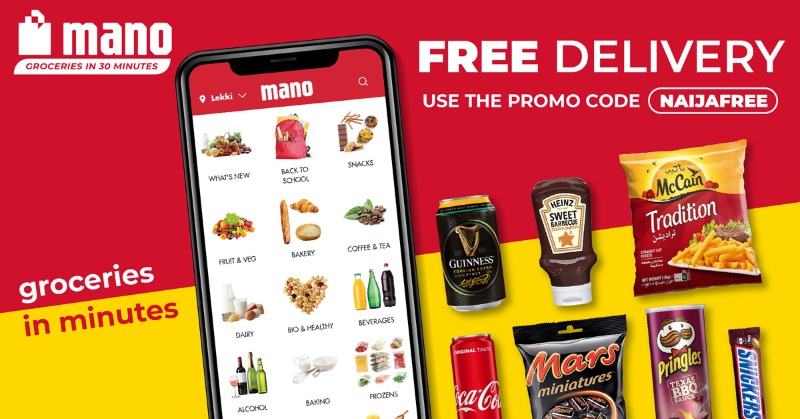Mano, a grocery delivery startup originally from Angola, has recently made significant strides into Nigeria’s ultra-competitive food delivery market. Founded in 2020 by Moe Nesr, the company expanded its operations to Nigeria in 2022. Serving high-end areas in Lagos and Abuja, Mano is known for delivering groceries and household appliances from its dark stores within a 10km radius. With its latest venture into food delivery, Mano aims to secure a substantial market share in the $936.5 million segment, competing against established players like Chowdeck, Food Court, Glovo, and HeyFood. The market saw the exit of Bolt and Jumia in late 2023, setting the stage for Mano’s entry.
Mano’s Unique Approach in a Competitive Market
In a market where competitors are heavily investing in marketing and under pressure to reduce commissions, Mano is taking a different approach. The company charges a flat delivery fee of ₦1,200 on all orders. While this is more expensive than other players, Mano’s focus on affluent areas and its existing customer base accustomed to similar fees for grocery deliveries mitigate the risk.
Catering to Diverse Customer Needs
Mano aims to cater to various customer segments, from food enthusiasts who seek a variety of cuisines regardless of price to aspirational customers who desire quality food at moderate prices. Fadekemi Adefemi, Mano’s marketing manager, emphasized the company’s commitment to meeting these diverse needs.
Addressing Pain Points in Food Delivery
Recognizing the common issues in the food delivery business such as delayed delivery, damaged food, and cumbersome refund processes, Mano is set to tackle these pain points with a different operational model. Unlike its grocery delivery service, which involves owning inventory and ensuring quality through direct inspection by its staff, the food delivery business will adopt an aggregation model similar to Chowdeck and Glovo. This model relies on partner restaurants, which poses challenges in controlling food quality and preparation time.
READ ALSO: Jumia Food Is Leaving Nigeria. Here Is What Nigerians Would Miss About Them.

Innovative Solutions for Quality Assurance
To address these challenges, Mano will allow customers to track their orders in real-time, a feature already offered by many competitors. Additionally, the company will limit its delivery radius to 10km from partner restaurants, ensuring timely delivery. Unlike its competitors, Mano is not focused on rapid expansion; instead, it is slowly building a model prioritizing efficiency over scale.
A Focus on Efficiency Over Scale
Editor’s Choice
Mano’s strategic approach emphasizes nurturing a loyal customer base rather than pursuing rapid expansion. “Mano is not looking to serve everybody,” Adefemi explained. “If we have 1,000 customers, we want to nurture them and ensure they have all they need.”
Data-Driven and Revenue-Focused
Despite its tactical approach, Mano remains ambitious and revenue-focused. The company’s data-driven strategy reportedly shows steady revenue growth if it consistently delivers quality at a measured pace. While the company declined to share specific user numbers or gross merchandise value from its grocery delivery arm, Adefemi confirmed that the business is performing well and that investors, who have provided over $4 million in funding, support the move into the food delivery vertical.
The Underdog Strategy
Internally, Mano embraces its status as an underdog in the competitive market. “We say among ourselves, ‘Mano is the underdog. You won’t see us everywhere, but we are moving and even so steadily,'” Adefemi concluded.
With its unique approach, focus on efficiency, and commitment to quality, Mano aims to carve out a significant niche in Nigeria’s food delivery market.



